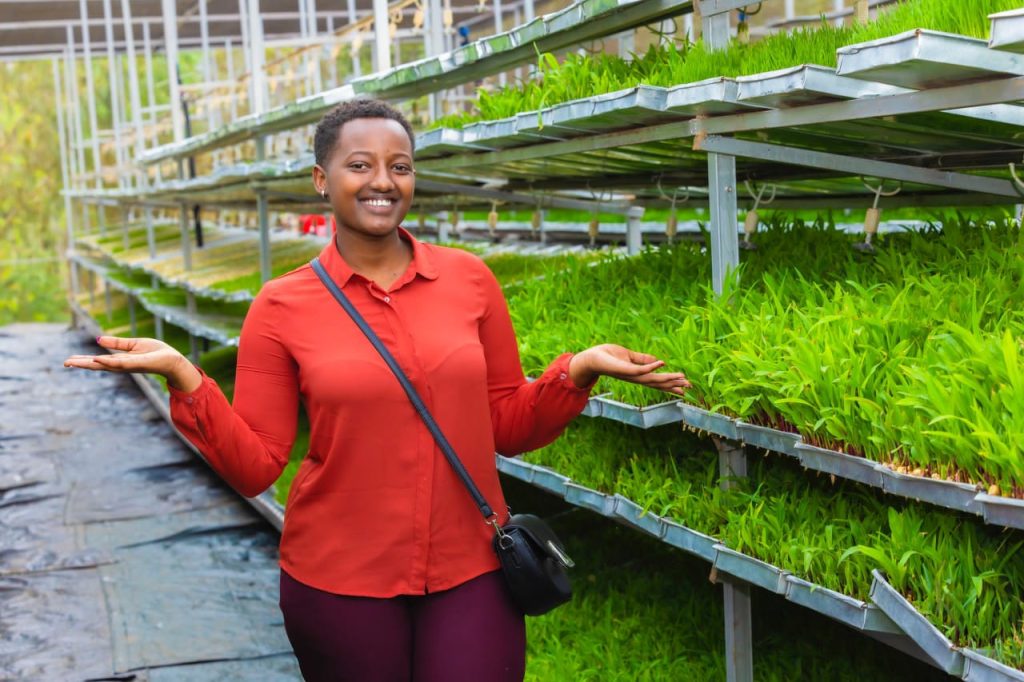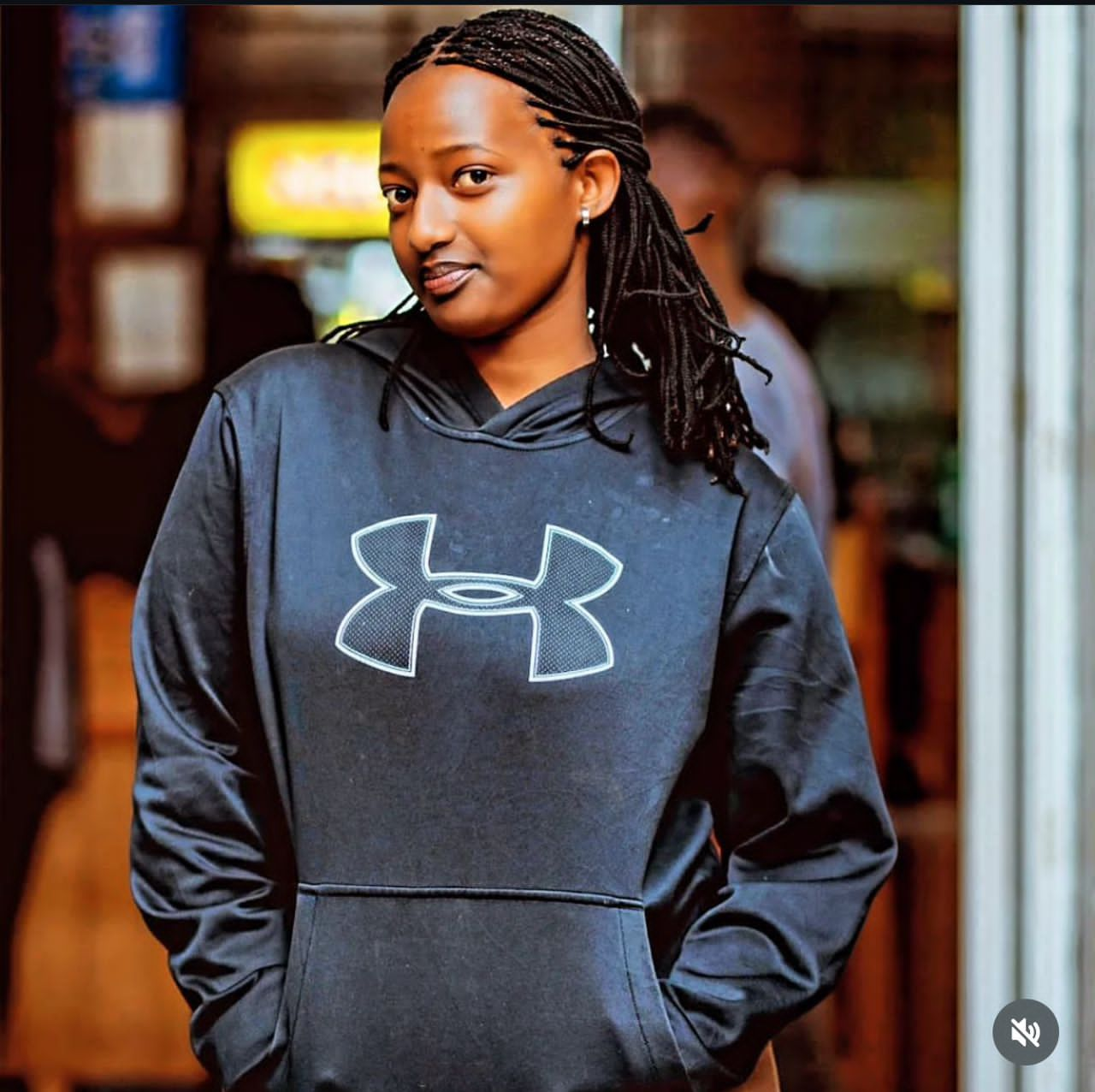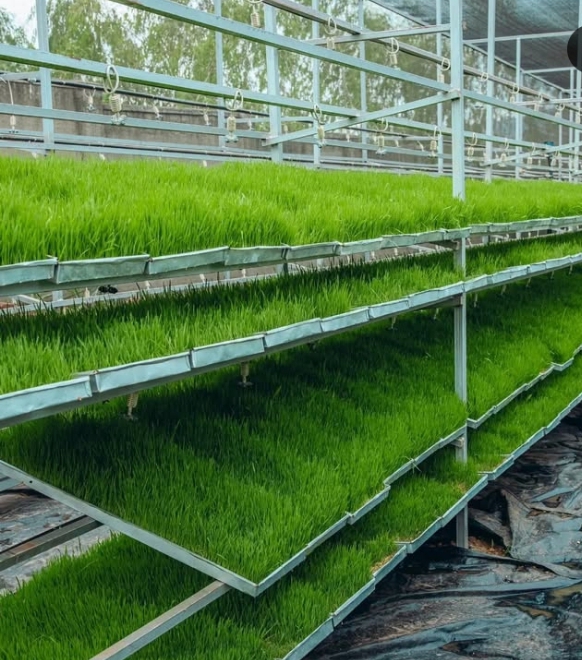The Rwimbogo Hydroponic Fodder Project, implemented in partnership with UNDP_Rwanda, is revolutionizing livestock farming in Rwanda’s Eastern Province by introducing innovative and sustainable feeding solutions.
Hydroponic fodder involves growing grains like barley or wheat in a soil-free, water-efficient environment. This method allows farmers to produce nutrient-rich animal feed year-round, even during dry seasons, using minimal land and up to 90% less water than traditional farming methods.
“This project is a game-changer for our farmers,” stated Ms. Umuhoza Grace, UNDP Rwanda Resident Representative, in a past interview. “It directly addresses the challenges of climate change and land scarcity, providing a sustainable pathway to increased productivity and resilience for rural communities.”
Since its launch, the project has significantly improved both the quality and quantity of milk production in the region.
The fresh, green fodder boosts livestock nutrition, health, and productivity, reducing farmers’ dependence on costly commercial feed and unpredictable weather conditions. The result is higher milk yields and better income for rural households, helping them move toward greater food security and financial stability.
Mr. Jean-Pierre Nsengimana, a local farmer participating in the project, shared his delight with the project. “Before, we struggled to feed our cows, especially during the dry season. Now, with hydroponics, we have fresh, nutritious fodder every day. My cows are healthier, and my milk production has nearly doubled. It’s transformed my family’s livelihood.”
In addition to hydroponic fodder, the project also introduces homebiogas systems that convert animal waste into clean cooking gas and organic fertilizer. This integrated approach not only promotes environmental conservation but also supports energy access and soil health.
“The holistic approach of the Rwimbogo project, combining hydroponics with homebiogas, creates a powerful synergy,” commented Dr. Agnes Mukamurenzi, an agricultural expert from the Ministry of Agriculture and Animal Resources. “It’s not just about feeding animals; it’s about building comprehensive, sustainable agricultural ecosystems that benefit both people and the environment.”
Through these technologies, UNDP_Rwanda is empowering local communities, especially women and youth, with practical tools to build climate-resilient and sustainable agricultural livelihoods.






